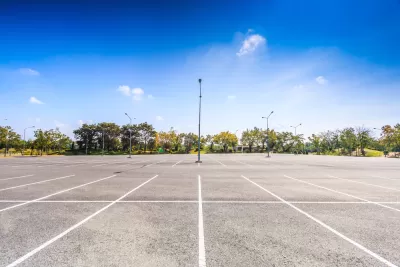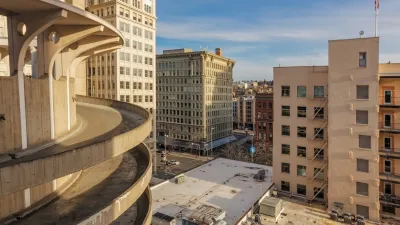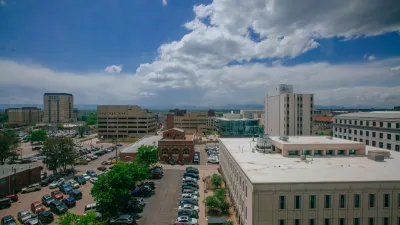According to one local official, Dallas projects routinely build 20 to 30 percent more parking than they need, driving up the cost of housing and leading to unsustainable land use patterns.

Dallas density advocates are continuing the fight to eliminate off-street minimum parking requirements in an effort to reorient their land use to denser, more walkable patterns and reduce the cost of housing in the Texas city.
As Andrew Terrell reports in The Real Deal, the proposal is supported by some local officials such as District 10 City Plan Commission member James Housewright, who said the city “consistently” builds 20 to 30 percent more parking than is actually needed. “This amended ordinance has the potential to do more good for the city in terms of land use and urban design than anything else we’ll do.”
According to Terrell, “If approved, the proposal would not reduce parking for existing developments, but it would grant developers flexibility for future projects. Larger developments would require submission of transportation demand management plans to incentivize reduction of single-occupant vehicle trips.”
FULL STORY: Car-loving Dallas could eliminate developer parking minimums

Trump Administration Could Effectively End Housing Voucher Program
Federal officials are eyeing major cuts to the Section 8 program that helps millions of low-income households pay rent.

Planetizen Federal Action Tracker
A weekly monitor of how Trump’s orders and actions are impacting planners and planning in America.

The 120 Year Old Tiny Home Villages That Sheltered San Francisco’s Earthquake Refugees
More than a century ago, San Francisco mobilized to house thousands of residents displaced by the 1906 earthquake. Could their strategy offer a model for the present?

HSR Reaches Key Settlement in Northern California City
The state’s high-speed rail authority reached an agreement with Millbrae, a key city on the train’s proposed route to San Francisco.

Washington State Legislature Passes Parking Reform Bill
A bill that would limit parking requirements for new developments is headed to the governor’s desk.

Missouri Law Would Ban Protections for Housing Voucher Users
A state law seeks to overturn source-of-income discrimination bans passed by several Missouri cities.
Urban Design for Planners 1: Software Tools
This six-course series explores essential urban design concepts using open source software and equips planners with the tools they need to participate fully in the urban design process.
Planning for Universal Design
Learn the tools for implementing Universal Design in planning regulations.
Ada County Highway District
Clanton & Associates, Inc.
Jessamine County Fiscal Court
Institute for Housing and Urban Development Studies (IHS)
City of Grandview
Harvard GSD Executive Education
Toledo-Lucas County Plan Commissions
Salt Lake City
NYU Wagner Graduate School of Public Service





























